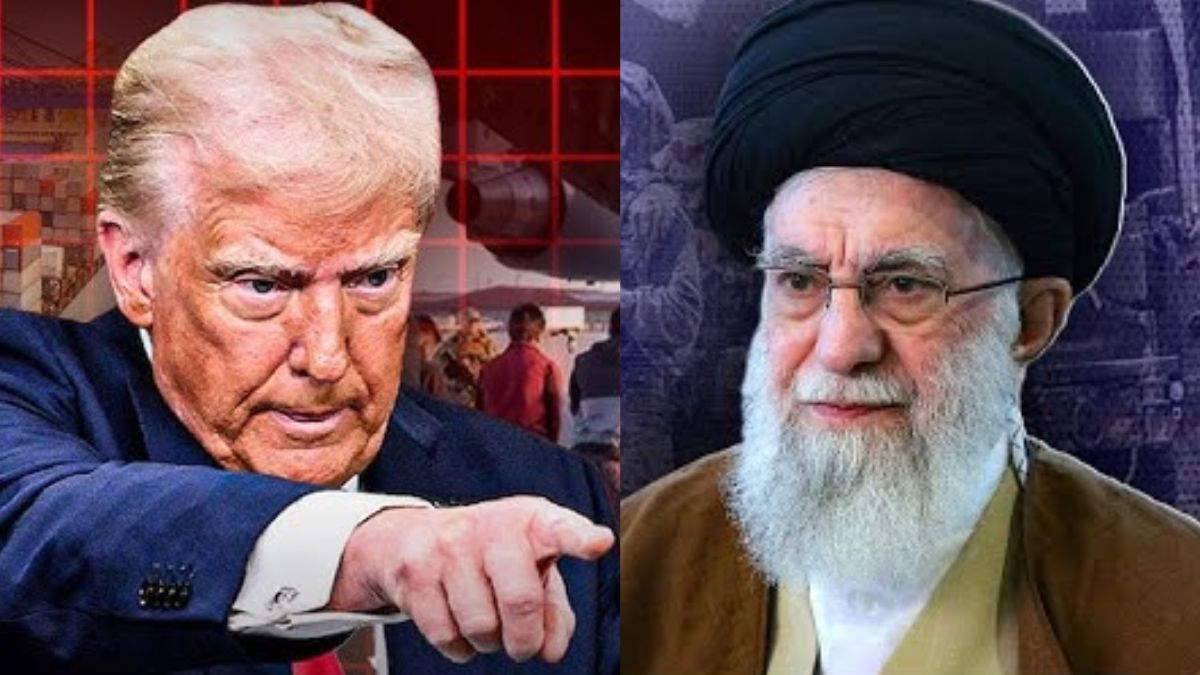Almost seven years ago, President Donald Trump unilaterally withdrew the United States from the Iran nuclear deal—formally known as the Joint Comprehensive Plan of Action (JCPOA)—which had been brokered in 2015 under President Barack Obama after years of negotiations with global powers—including the EU, Russia, and China—had eased sanctions on Iran in exchange for strict limits and oversight on its nuclear program.
Trump, however, condemned the pact as deeply flawed, calling it “one of the worst and most one-sided transactions” the US had entered into. He argued that while the deal may have curbed Iran’s nuclear ambitions temporarily, it failed to address Tehran’s broader destabilising activities in the region, including support for proxy militant groups.
Read Also: ‘Will not accept any form of threat…’: Iran sets firm conditions ahead of nuclear talks with US
Rejecting the JCPOA, Trump reinstated harsh sanctions that had previously been lifted, contending that a tougher approach was necessary to prevent Iran from developing nuclear weapons. He justified the move by warning that inaction would allow Iran, which he labelled “the world’s leading state sponsor of terror,” to edge closer to developing nuclear weapons.
Now, American and Iranian officials are set to engage in a rare round of high-level talks this weekend in Muscat, Oman amid heightened regional tensions and renewed concerns over Iran’s nuclear ambitions. The meeting, led by President Donald Trump’s special envoy Steve Witkoff, is said to be a renewed diplomatic effort during Trump’s second term — even as military options remain on the table.
WATCH: Trump Announces Direct Nuclear Talks With Iran | Vantage with Palki Sharma | N18GPresident Trump wrote to Khamenei urging negotiations but warning of possible military action if Iran refuses. “Far from putting up a show and merely talking in front of the cameras, Tehran is seeking a real and fair agreement, important and implementable proposals are ready,” Khamenei adviser Ali Shamkhani posted on X.
He confirmed that Foreign Minister Abbas Araghchi was heading to Oman “with full authority for indirect negotiations with America”, adding that if Washington showed goodwill, the path forward would be “smooth”.
Impact Shorts
More ShortsAhead of the talks, Trump reiterated that military action was “absolutely” possible if they failed.
At the same time, the US has stepped up its military posture in the region — including relocating a third of its stealth bomber fleet to Diego Garcia in the Indian Ocean and continuing airstrikes against Iranian-backed Houthi forces in Yemen. These moves are widely interpreted as signals to Tehran about Washington’s willingness to escalate if diplomacy fails.
Despite the sabre-rattling, Trump has also made moves indicating a genuine interest in reaching a new agreement. In March, he sent a letter to Iran’s Supreme Leader Ayatollah Ali Khamenei, offering a two-month window for a deal — a countdown that begins with this weekend’s meeting in Muscat. Officials close to the administration say the president hopes to avoid a wider military conflict while securing a more favourable successor to the 2015 Joint Comprehensive Plan of Action (JCPOA), which he withdrew from during his first term.
Iran, too, appears to be recalibrating. President Masoud Pezeshkian has indicated a more pragmatic approach as Iranian authorities recently censured a conservative newspaper for publishing a column that fantasised about Trump’s assassination — a move seen as a rare gesture of restraint from a regime long steeped in anti-American rhetoric.
In a further sign of diplomatic manoeuvring, Iranian Foreign Minister Seyed Abbas Araghchi published an op-ed in The Washington Post on Tuesday criticising the Biden administration’s lack of commitment to past negotiations and hinting at a “trillion-dollar opportunity” for American businesses should ties normalise.
While Tehran has attempted to characterise the Muscat summit as “indirect” for domestic optics, US officials maintain it will be a direct dialogue. Though expectations remain modest, both sides seem to recognise the stakes: for Trump, a potential legacy-defining deal; for Iran, a possible off-ramp from sanctions and further confrontation.
With inputs from agencies
)